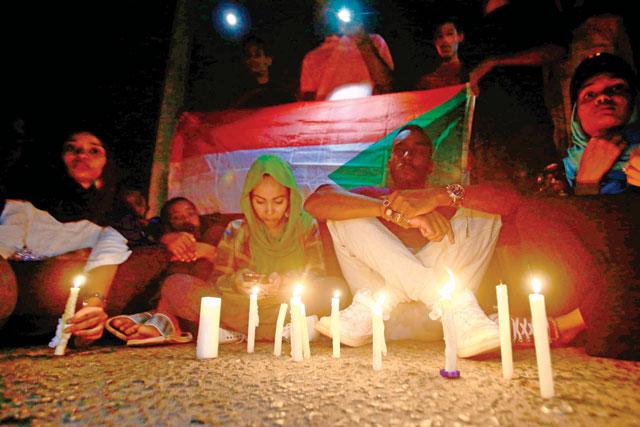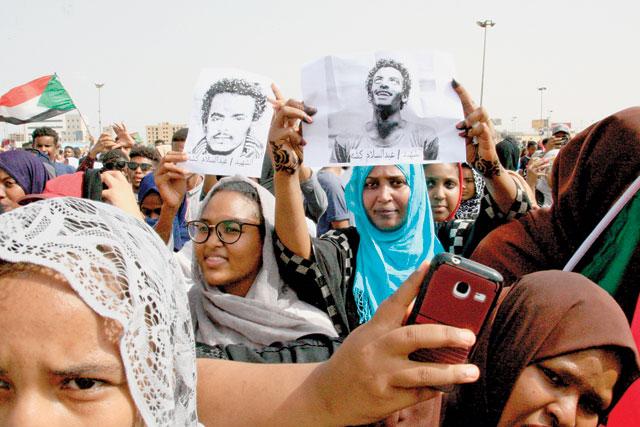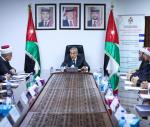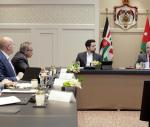You are here
Sudan’s top spy orders release of detainees held in protests
By AFP - Jan 29,2019 - Last updated at Jan 29,2019
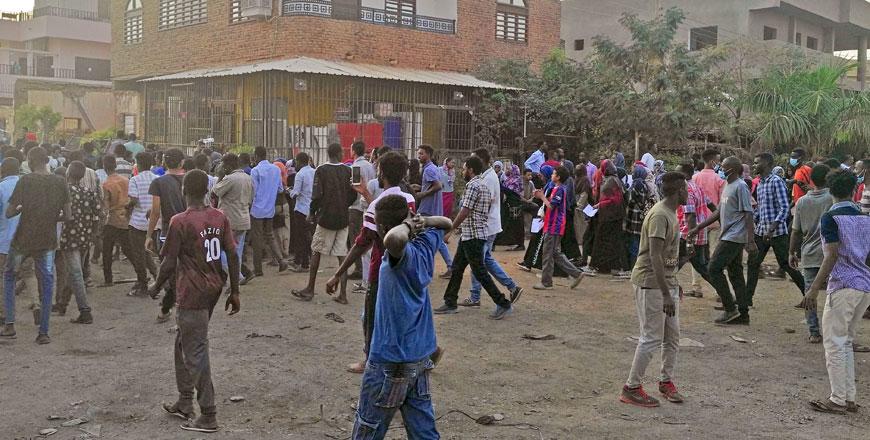
Sudanese protesters march during a demonstration against the government in the capital Khartoum’s twin city of Omdurman, on Tuesday (AFP photo)
KHARTOUM — The head of Sudan’s powerful intelligence agency on Tuesday ordered the release of all detainees held during anti-government demonstrations that have rocked the country for weeks, even as protesters staged new rallies.
The order issued by Salah Ghosh comes amid mounting international criticism of the agency’s sweeping crackdown to prevent the spread of protests that first erupted in December.
‘‘The chief of the National Intelligence and Security Service [NISS] issued an order to release all detainees held in recent incidents,’’ the information ministry said.
Rights groups say the NISS has arrested more than 1,000 people, including protesters, opposition leaders, activists and journalists, as part of the clampdown on the demonstrations.
The east African nation has been rocked by deadly protests since December 19 after a government decision to triple the price of bread.
The demonstrations swifty turned into nationwide calls for President Omar Al Bashir to step down.
Riot police have confronted the protesters with tear gas as part of the NISS-led crackdown.
Officials say 30 people have died in violence during the protests, while rights groups have put the death toll at more than 40.
Hours before Tuesday’s order to release the detainees came, crowds of protesters took to the streets in three areas of Khartoum and three areas of Omdurman, but they were quickly tear-gassed, witnesses said.
Chanting ‘‘Freedom, peace, justice’’ and ‘‘We are not scared’’, protesters clapped and whistled as they launched new rallies, witnesses said.
Mourning turns into demonstrations
In a separate demonstration, tribesmen from the Red Sea city of Port Sudan mourned the deaths, 14 years ago, of 21 comrades, with a sit-in against Bashir’s government, witnesses and activists said.
On January 29, 2005, crowds of people from the Beja tribe held a protest in the town calling on Khartoum to allocate more resources to the east Sudan region from where they hailed.
In the ensuing clashes with government forces, 21 demonstrators were killed, according to activists.
Since then, every year on January 29, Beja tribesmen mark the deaths with a sit-in at Port Sudan.
On Tuesday it turned into a protest against Bashir’s government, witnesses and activists said.
The tribesmen gathered at a downtown square and chanted ‘‘Freedom, peace, justice’’ — the main slogan of the ongoing anti-government movement.
‘‘This sit-in is not just to mourn the 2005 deaths, but also to mourn the deaths of those who have died in the uprising since December,’’ Beja activist Abdallah Mussa told AFP from Port Sudan.
The Sudanese Professionals’ Association (SPA) that has led the protest campaign has called for daily rallies against the government of Bashir, who swept to power in an Islamist-backed coup in 1989.
The veteran leader has remained defiant in the face of protests.
US criticism
The widespread crackdown against protesters has triggered international criticism, with the United States warning Khartoum its actions might impact ties between the two.
The US last week said it was ‘‘concerned about the increasing number of arrests and detentions’’ and urged the government to free ‘‘all journalists, activists and peaceful protesters who have been arbitrarily detained’’.
‘‘We also call on the government to allow for a credible and independent investigation into the deaths and injuries of protesters,’’ said State Department spokesman, Robert Palladino.
Excessive use of force and intimidation of the press and rights activists, he warned, would jeopardise ties with the United States.
The US has been slowly mending relations with Sudan after decades of tension, including over the presence of late Al Qaeda chief Osama bin Laden in the country, in the 1990s, and a military campaign in the western region of Darfur that Washington described as genocide.
Britain, Canada, Norway and the United Nations have also criticised the crackdown, along with rights groups.
For years, anger has been mounting across Sudan over growing economic hardships and deteriorating living conditions.
That ire has now spilt onto the streets, with protesters demanding the resignation of Bashir.
But Bashir has blamed the country’s economic woes on Washington, that had imposed a trade embargo on Khartoum in 1997.
Washington lifted the embargo in October 2017, but that has failed to revive the country’s economy, hit by soaring inflation and an acute foreign currency shortage.
Related Articles
KHARTOUM — Members of a feared Sudanese paramilitary force shot dead a civilian on Sunday in a town southeast of the capital as angry reside
KHARTOUM — A Sudanese civilian detained and allegedly tortured by security agents in a central town has died in custody, a doctors committee
KHARTOUM — Hundreds of people gathered in Sudan’s capital Wednesday in a show of support for President Omar Al Bashir’s embattled regim


